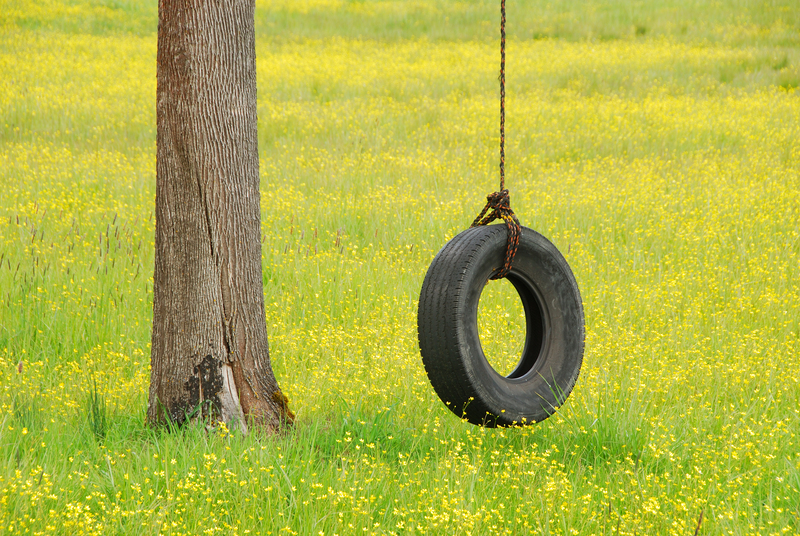Simple Tips for Reducing Home Waste Efficiently
Posted on 29/05/2025
Simple Tips for Reducing Home Waste Efficiently
Are you looking for easy ways to minimize household waste and adopt a more sustainable lifestyle? Reducing home waste efficiently offers not just environmental benefits, but can also save you money and create a healthier living environment. Whether you are new to sustainable living or seeking to improve your existing habits, this comprehensive guide provides actionable advice and simple tips to help you reduce home waste with minimal effort.
Why Is Reducing Household Waste Important?
Cutting down home waste is crucial for several reasons. Landfills are quickly filling up, and improper disposal leads to pollution, greenhouse gas emissions, and higher resource consumption. When you reduce household waste, you not only decrease your ecological footprint but also promote cleaner communities, conserve resources, and set a positive example for others.

1. Understand Your Household Waste
The first step in decreasing domestic waste is to understand what you are actually throwing away.
Conduct a Home Waste Audit
- Examine Your Trash: Over the course of a week, observe what you're discarding. Categorize items into food scraps, plastic, paper, metal, glass, and other materials.
- Analyze Your Patterns: Identify items that appear most often in your waste bin. Are there excessive packaging materials, spoiled food, or single-use plastics?
- Find Areas for Improvement: Focus on types of waste you can immediately reduce or eliminate with simple changes.
2. Adopt the "Reduce, Reuse, Recycle" Mindset
The cornerstone of effective home waste reduction is to practice the well-known three Rs:
Reduce
- Buy Only What You Need: Reduce unnecessary purchases, especially items with excess packaging.
- Choose Quality over Quantity: Invest in durable goods that last longer and reduce the need for frequent replacements.
- Opt for Digital Alternatives: Choose e-bills, digital tickets, and online magazines to cut down on paper waste.
Reuse
- Repurpose Containers: Use glass jars, plastic tubs, and cardboard boxes for storage or crafts.
- Donate or Sell Unwanted Items: Give clothing, toys, and electronics a second life instead of sending them to the landfill.
- Choose Reusable Products: Switch to reusable bags, coffee cups, water bottles, and shopping totes.
Recycle
- Sort and Clean Materials: Ensure recyclables like paper, plastics, and metals are clean and sorted according to local guidelines.
- Participate in Community Recycling: Support and utilize recycling programs for electronics, batteries, and hazardous materials.
3. Tackle Food Waste Efficiently
Food waste is a major contributor to household trash, but with careful planning, you can minimize spoilage and disposals.
Smart Shopping and Storage
- Plan Your Meals: Before shopping, create a weekly menu based on what you already have to reduce overbuying.
- Use a Shopping List: Stick to your list to resist impulse purchases that often go to waste.
- Store Food Properly: Learn how to preserve fresh produce, refrigerate correctly, and organize your pantry to avoid forgotten ingredients.
Leftover Creativity
- Repurpose Leftovers: Transform yesterday's dinner into today's lunch or freeze extra portions for later use.
- Compost Food Scraps: Start a home compost bin for fruit peels, coffee grounds, eggshells, and vegetable trimmings, reducing garbage and enriching your garden soil.
4. Minimize Single-Use Plastics
Single-use plastics are among the most persistent forms of waste. Making small changes in your daily routine can dramatically decrease your plastic output.
- Use Cloth Grocery Bags: Always bring reusable bags for shopping--keep a set in your car, office, or by your home's entryway for convenience.
- Opt for Refill Stations: Purchase products like soaps, cleaning solutions, and dry foods in bulk from refill shops that allow your own containers.
- Avoid Bottled Water: Switch to a high-quality water filter and reusable bottle.
- Say No to Plastic Straws and Utensils: Carry your own metal, bamboo, or silicone versions when dining out.
5. Buy in Bulk and With Less Packaging
- Choose Larger Packages: Buying in bulk reduces the ratio of packaging to product and often saves money.
- Shop at Local Markets: Farmers markets typically use less packaging than supermarkets and support local producers.
- Bring Your Own Containers: Many health food and zero-waste stores permit customers to fill jars, bags, and boxes with cereals, spices, and cleaning products.
6. Repair and Upcycle Household Items
Instead of throwing things away at the first sign of wear, embrace repair and upcycling to shrink your domestic waste footprint.
- Fix Before Tossing: Replace shirt buttons, sew up small holes, and glue broken ceramics or toys.
- Upcycle Old Items: Convert glass bottles to vases, turn t-shirts into cleaning cloths, or build organizers from cardboard boxes.
- Attend Local Repair Cafes: More communities are hosting free workshops where skilled volunteers help repair electronics and household goods.
7. Switch to Sustainable Household Products
- Choose Compostable or Reusable Cleaning Supplies: Use cloth rags, reusable mop heads, and compostable sponges.
- Opt for Concentrated Cleaning Products: Refills and concentrates reduce packaging and cost.
- Pick Biodegradable Items: Bamboo toothbrushes, paper-based cotton swabs, and biodegradable trash bags are all great alternatives to plastic.
8. Grow Your Own & Buy Local
- Start a Home Garden: Even a small herb box or container garden on a balcony can reduce your need for store-bought, packaged produce.
- Support Local Producers: Locally sourced food often uses less packaging and doesn't require long-distance transport.
9. Reduce Paper Waste at Home
- Go Digital Where Possible: Switch to online statements, e-books, and digital subscriptions.
- Reuse Paper: Make scratch pads from used sheets and save gift bags and wrapping paper for future use.
- Set Up a Home Recycling Station: Make it easy for all household members to recycle newspapers, magazines, and cardboard boxes.
10. Educate and Involve the Household
Reducing home waste efficiently is a team effort. Engaging everyone creates lasting change.
- Involve Kids: Teach children about separating recyclables, composting, and the value of reducing waste through games and challenges.
- Set Family Goals: Reward positive changes, like a week without plastic bags or maximizing food usage before spoilage.
- Share Knowledge: Discuss your waste reduction progress with friends and neighbors for ideas and additional motivation.
Common Challenges in Reducing Household Waste
Even with good intentions, cutting down domestic waste comes with obstacles. You may encounter limited access to recycling centers, confusing recycling rules, or difficulties finding package-free alternatives. Don't get discouraged. Start with small changes and build from there. Setbacks are natural, but persistent effort yields results.
Benefits of Efficient Home Waste Reduction
- Cost Savings: Buying less, wasting less, and reusing more all translate into significant savings over time.
- Better Health: Home-cooked meals, fewer chemicals, and fresher foods contribute to improved well-being.
- Cleaner Home: Less clutter and organized spaces result from mindful consumption and reduced garbage production.
- Environmental Impact: Reduced landfill use, fewer emissions, and conservation of resources create a positive ecological effect.
- Personal Satisfaction: Making eco-friendly choices fosters a sense of responsibility, achievement, and community spirit.

Conclusion: Make Waste Reduction a Way of Life
Simple tips for reducing home waste efficiently are within everyone's reach. By understanding your habits, choosing reusable options, managing food wisely, and engaging your household, you contribute to a cleaner environment and a more sustainable future. Remember, progress--not perfection--is the goal. Start with one or two strategies, celebrate your successes, and continue learning and evolving.
Make efficient waste reduction a natural part of daily life, and soon your household will reflect your commitment to a greener world!
Frequently Asked Questions About Reducing Home Waste
1. What is the simplest step to start reducing home waste?
Begin by bringing your own reusable shopping bags and avoiding single-use plastics. These two habits have the quickest impact on lowering the amount of trash generated at home.
2. How can I reduce food waste with a busy schedule?
Meal planning and freezing leftovers are highly effective. Preparing larger batches and dividing them into single servings can prevent spoilage and simplify weekday meals.
3. Are compost bins suitable for apartments?
Yes! Many compact, odorless composting options exist--like worm bins or bokashi composters--that work well in small spaces.
4. Can reducing home waste save money?
Absolutely. Buying less, wasting less, and choosing reusable items cuts costs on groceries, cleaning supplies, and household goods.
5. What are quick tips to share with kids about waste reduction?
- Turn off lights and electronics when not in use.
- Use both sides of paper for drawing or homework.
- Bring reusable bottles and snack containers to school.
Remember: Each small change helps. Embrace the journey toward reducing home waste efficiently, and inspire those around you to do the same!
Latest Posts
Mini Skips Uncovered: The Basics
Steering Clear of Harmful Plastics: What You Need to Know
Maximize Your Recycling at Home with Simple Suggestions
Breathe New Life into Style: Smart Clothes Recycling Solutions







